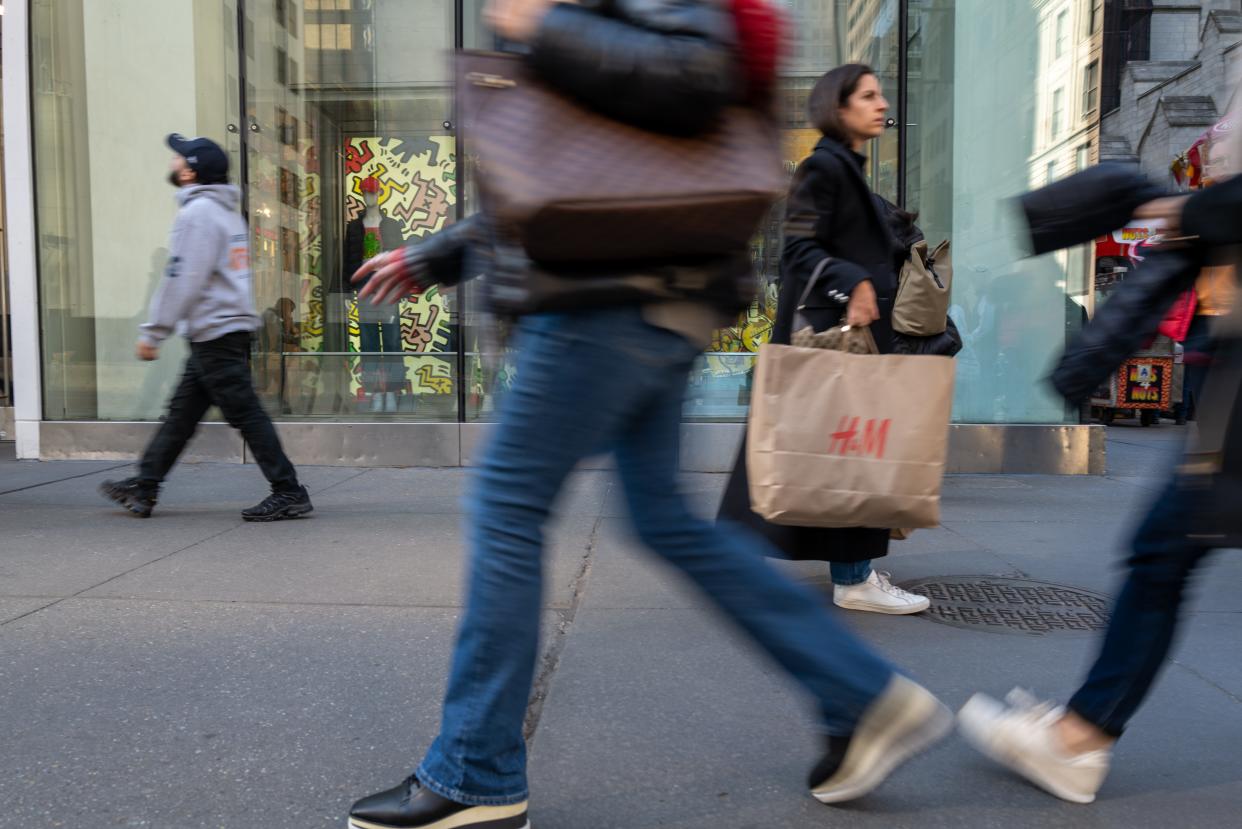When was the last recession? Here's a brief history of recent downturns
With most forecasters expecting the country to slip into a recession in the second half of 2023, the threat of a downturn is looming over the U.S. economy.
But for some observers, it may feel like we just emerged from one - and they would be right. Ayse Kabukcuoglu Dur, an assistant professor of economics at North Carolina State University said that “by looking at the data, we can say that there was about one recession per decade since the 1980s.”
She noted, however, that recent recessions in the U.S. were sparked by different factors, and that they are generally difficult to anticipate. “It is hard to tell how frequently recessions occur or to predict if a recession will happen soon,” she said in an email.
Here’s a very brief history of recent recessions.
Are there recession proof jobs?: These occupations tend to be least impacted
Rich Americans are on a spending spree: It may help US avoid a recession this year
What is a recession?
A recession is a notable drop in economic activity that lasts longer than a few months and is spread throughout the economy, according to the National Bureau of Economic Research.
“Generally recessions have some kind of overall trigger point,” said Stephan Weiler, a professor of economics at Colorado State University. “It's usually when the economy is sort of in a shaky situation like we have now.”
When was the last recession?
The most recent recession was during the COVID-19 pandemic, lasting from February to April 2020. The downturn was triggered by the health crisis, according to Dur.
“The U.S., like many countries in the world, implemented lockdown measures, which led to a decline in production and disruptions in global supply chains,” she said. “Consumer demand also declined as a result.”
The service sector was hit the hardest, she said, with the hospitality, entertainment and transportation industries experiencing the biggest impact. “Large fiscal stimulus packages introduced to mitigate the negative impacts of the pandemic contributed to high inflation rates that remain a problem for the U.S. economy,” she added.
That downturn was preceded by the Great Recession from December 2007 to June 2009, and another between March and November 2001.
Recessions explained: What causes and happens during one
What to avoid, what to buy?: How to financially prepare for 2023 - in case of recession
The Great Recession, triggered by the collapse of the housing market and the subprime mortgage crisis, saw unemployment go up, stock markets go down and many people lose their homes and savings, Dur said.

The 2001 recession, meanwhile, was prompted by the dot-com crash. “As the internet became widespread in the 1990s, technology stocks for mainly internet-related companies became overvalued, leading to a bubble in the stock market,” she said. “But as investor sentiment changed, the bubble burst and many online shopping and communication companies shut down.”
Dur noted that the impact on the U.S. economy was “relatively mild” and mostly contained to the technology sector, with an increase in unemployment among those workers.
Weiler added that recessions also impact states differently, depending on their economic makeup.
And if those previous downturns are any indication, the next one may not look the same. “By looking at the recent recessions, all were led by different factors and had different consequences,” Dur said.
Nathan Diller is a consumer travel reporter for USA TODAY based in Nashville. You can reach him at ndiller@usatoday.com.
This article originally appeared on USA TODAY: When was the last recession? What to know
